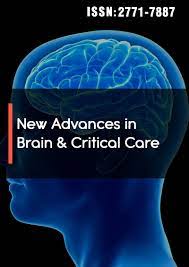Anxiety, Depression, and The Burden of Caring for Patients with Palliative Needs Prospective Longitudinal Study
Abstract
Rodica Sorina Pop, Diana Tint, Sorina-Livia Pop, Cristina Paula Pop, Daniela Mosoiu
Objectives: This study aims to measure the primary caregiver’s (PrC) anxiety, depression and burden of care and to identify the correlation between the outcomes.
Material and Methods: This prospective observational longitudinal study assessed the burden of care for patients with palliative needs comparatively between two groups: caregivers of patients with cancer and caregivers of patients with non-malignant diseases. At the same time, the score of anxiety and depression of these caregivers was measured. The researcher used the Burden Scale for Family Caregivers (BSFC) to measure the burden of care and Hospital Anxiety and Depression Scale (HAD) to measure the anxiety and depression of primary caregivers. These questionnaires were applied at the initial moment (T0) and periodically for three months. If the patient died in this period, the caregivers were evaluated two months after the event. Statistical analysis used the Mann Whitney U test and the Wilcoxon test to compare the two groups and Pearson test to assess the correlation between burden and anxiety/ depression.
Results: The burden assessment of caregivers for cancer patients showed a statistically significant increase over 3 months (p=0.001). At the initial moment (T0), a statistically significant difference is observed between the burden of the oncological group and the non-oncological one. The correlation between the caregiver's burden and anxiety/ depression was statistically significant (p = 0.001).
Conclusions: The load had a direct and statistically significant impact on the PrC's psycho-emotional state, and there is a strong link between it and the caregiver's anxiety and sadness when caring for a palliative patient. From a practical point of view, it is important to early identify the burden of care and to know how the PrC is relating to it, as well as to assess his/her psycho-emotional state in order to act through appropriate and individualized interventions.




